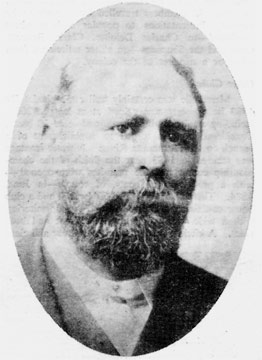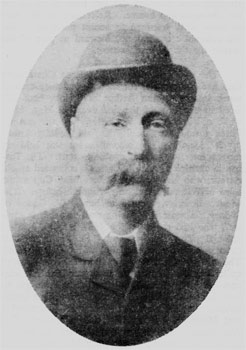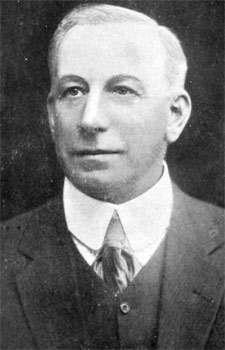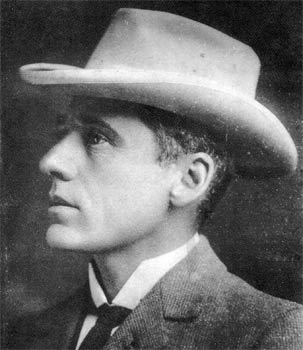
Sydney Rows
A Centennial History of the Sydney Rowing Club, 1970, by A L May
Table of Contents
Chapters
- Preliminaries: before 1870
- Foundations: 1870-1880
- New Clubs: 1880-1890
- The Amateur Question: 1890-1900
- Sydney on Top: 1900-1910
- Henley and War: 1910-1920
- Pearce and Mosman: 1920-1930
- Financial Problems: 1930-1940
- War and Wood: 1940-1950
- Strength and Stability: 1950-1960
- On Top Again: 1960-1970
Appendices
3. New Clubs: 1880-1890
Racing
The decade opened with the Rowing Association holding its first-ever regatta. It was held on the Parramatta River in October, 1880, this being "a time when our aquatic men cannot be allured away by sailing contests, which do not inflict upon them the deprivations incidental to training for a rowing contest during the hot summer months". Fixed seats were to be used in all races and outrigger racing was to be encouraged.
The regatta was only a limited success: one reporter wrote that "considering that it was got up by representatives of our various Rowing Clubs, it was certainly in every sense a modest affair, and so far as sport went, was not on a par with an ordinary Rowing Club Regatta". It proved a great day for Sydney, nevertheless. The club had a row-over in the senior eights while David Lord easily won the Sydney Mail challenge prize for sculls from John Arthur. Sydney won the junior fours, was first and second in the maiden fours and, in the fifth and final race, junior double sculls, finished second to Mercantile. Glebe and North Shore both participated.
Sydney's seniors continued to dominate the various regattas. A senior eight at Balmain Regatta was cancelled when Sydney was again the only entry. In pair-oared rowing, Lord and Finlayson of Sydney predominated. One of their victories was at a Mercantile club regatta when this particular race was thrown open to members of other clubs. The crew won by 15 lengths.
Glebe opened the maiden four race at its regatta in December, 1880, to other clubs and the practice of having one open race on a club's own regatta programme soon became widespread (although the club concerned generally took care to see they had nominated a race which their own members had a good chance of winning). Sydney itself did not, however, adopt the practice for another ten years. In single sculling, the position of Lord and Arthur was threatened by Bill Brett of Mercantile, who soon became a well-known figure on the Sydney rowing scene.

P J Clark
The Rowing Association selected a panel of three (including Deloitte) to choose the intercolonial eight for the race of April, 1881. Clark was, once again, named as coach. The crew selected contained two Mercantile men - Charles Bros and Brett and six Sydney oarsmen - Gaden, Arthur, Anslow, Salmond, Finlayson and Lord. The NSW crew rowed in a Sydney boat and trained mostly from the SRC shed at Abbotsford. When the Victorians arrived, they too trained from the Branch!
Both crews tried and discarded swivels, relying instead on poppets. The crowd of 5000-odd, including the Governor, was to be disappointed in the race itself. Victoria led from start to finish and won by about 30 seconds over the championship course. Experts considered their style not individualistic like that of the NSW oarsmen: the Victorian rowing "was, from end to end, as one piece of beautifully adjusted machinery". Several members of the NSW crew also tired badly during the race. Some disruption to the big event was caused by steamers and suggestions were soon made that a move to the Nepean be considered for the next such clash.
The 1881/82 season opened in October with two big events: a procession of club boats around the harbour, and the Association's second regatta, rowed on two succeeding Saturdays. Highlights of the regatta were the entry of Newcastle Rowing Club in the maiden fours, a win to Sydney over Mercantile in the challenge eights, Brett's win over Bros in the Sydney Mail sculls, and the first school race to be rowed in Sydney, in which Royston College beat Sydney Grammar by 6 lengths for the "Mayor's Grand Challenge Cup". The donation of major trophies continued with a 100 guinea Holdsworth-Gardyne trophy for senior eights being given to the NSWRA for competition in December, 1881. Disappointingly, Sydney was the only entry and had a row-over. A Krug Champagne Cup, worth 100 guineas, was also given to the Association for competition among amateur scullers.

J N Oatley
The question of selection of the 1882 intercolonial crew aroused much discussion and it was resolved to place the entire management in the hands of the captains of the four local clubs. James Oatley of Sydney was named as coach and the crew was entirely from Sydney with the exception of Bros at 4. It was N. Johnson (bow) R. Moppett, E.P. Simpson, Bros, J.A. Brodie, C. W. Gaden, R. Bedford and J. Thomson (stroke). Little publicity was given to the crew in Sydney due, presumably, to the defeat the previous year.
In Victoria, a definite style difference was again noted: the Victorian rowing featured a vigorous beginning, while NSW "appear to pull with the same even strength from the beginning to the end of the stroke". On the day itself, "contrary to all anticipations", NSW won by 1 1/2 lengths over a four mile course, having led all the way. A NSWRA celebration dinner was postponed as a mark of respect following the death of the popular Sydney oarsman, David Lord.
Sydney again dominated the senior events in 1882/83. At the Association's Regatta, the club rowed over in the senior eights. When intercolonial time came round, Oatley was quickly reappointed coach and also named as one of the three selectors. His crew was wholly from SRC - but only because Bros had now left Mercantile and joined Sydney.

George Upward
It was identical to the previous year's crew with the exception of the bow seat, where Middleton, a promising sculler, replaced Johnson. Gaden later dropped out of the crew, and was replaced by Robertson of Mercantile. Stroking Victoria for the fourth successive time - and also coaching the crew - was the famous George Upward. Six of his colleagues of the 1882 crew had been replaced, however, by other oarsmen. The new Victorian crew proved much faster than the year before and the race, again on the Parramatta, resulted in a hollow win to them by about 10 lengths. The heavier and stronger crew recorded the fast time of 18min 12secs for the championship course. Reluctance on the part of some NSW oarsmen to accept positions in the intercolonial crew was put forward as part of the reason for the lack of success.
One event at the 1882 Balmain Regatta proved exciting. In the junior sculls, Clark of the newly-formed Balmain Club and Trimble of Mercantile fouled several times during the race. At one stage they became locked together, the manoeuvre culminating in Clark capsizing. Thinking quickly, however, he grabbed Trimble's boat and, "sitting on the bows, sank her". Both got back into their boats but Trimble's craft was damaged and it sank again. Clark finished alone, but due to his "disgraceful behaviour" was immediately disqualified.
The series of races for the Krug Champagne Cup had, meanwhile, commenced and they created much interest. John Arthur of Sydney beat Bill Brett in one heat of the first event in May, 1882 while a Victorian, A. W. Fittes, won the second. Fittes proved too good in the final, beating Arthur by 20 lengths. The second event was held six months later, with Fittes unable to start. The Tasmania champion, Alfred Sharland, competed as did Arthur, who had won the Sydney Mail Cup at the third NSWRA Regatta only a month before. The winner, however, proved to be C. W. Gaden of Sydney, "a most painstaking and persevering sculler", who had rowed in the 1881 and 1882 intercolonial races. He won by 4 lengths from Brett (who protested unsuccessfully) with Sharland third. The next event was rowed in June, 1883 and proved quite eventful. Gaden and Brett were the heat winners but in the final Middleton finished strongly to beat them both. Brett, in second place half a length behind, soon had another protest lodged, alleging that Middleton had rowed inside a beacon. The Association, ruling it was a matter for the umpire, declined the appeal. Over forty Mercantile members gathered at a meeting a few days later and unanimously passed the following resolution:
"That this meeting views with more regret than astonishment the action of the Rowing Association in reference to the Krug Cup, an action which they consider crude, puerile, unjust, and unsportsmanlike. They further recommend in the interest of aquatics the withdrawal of the Mercantile Rowing Club from the New South Wales Rowing Association."
In accordance with this recommendation, the club then withdrew from the Association. The fourth Krug event in November, 1883 had special interest: the three former winners, Gaden, Fittes and Middleton, were competing and a second win by either one would give him the Champagne Cup for good. Sharland and even Brett were also in the field. Fittes won a warm-up race at the Balmain Regatta and the form proved good, even though he was beaten by Sharland in one heat, with Gaden beating Brett by 10 lengths in the other. Fittes won the final by 5 lengths from Brett, with Sharland 7 lengths back third. Gaden stopped rowing soon after the start.
Mercantile continued to compete in other regattas and, in fact, was free to compete in Association races if the members so wished. Along with Sydney and Balmain, it took part in Glebe's regatta in July, 1883, the first held by a club to be open to all other clubs. Main interest must have lain in the senior sculls which Gaden won, with Brett finishing only fifth. Prizes were smoking caps, slippers and the like, gifts of the lady residents of the Glebe. Sydney's annual regatta, also that month, remained closed to all other clubs. Events held were scratch eights, maiden eights, senior sculls, junior sculls and junior double sculls. John Thomson beat Gaden in the main sculling event. Mercantile was, however, absent from the Association's regatta in October, 1883. Sydney rowed-over in the senior fours and easily won the junior fours. Sydney members filled all five places in the Sydney Mail sculls, with Middleton beating Gaden by 7 lengths. North Shore took the maiden fours, while St. Phillip's Grammar School beat Royston College and St. Ignatius' in the Mayor's Grand Challenge Cup for schools.
Mercantile was very successful in the National Regatta of January, 1884, while Brett added several more sculling trophies to his already substantial list. The Association asked Mercantile in February to reconsider the decision to withdraw and received an indication that the club would rejoin if amendments to the constitution were made. In particular, the club suggested the committee should be composed of club delegates only.
The RA decided, however, it was not prepared to vary its rules as the price for Mercantile's membership. Jim Oatley was again appointed coach of the intercolonial eight and, strangely, Mercantile's lack of membership did not prevent its captain being appointed to the selection panel nor three of its members from gaining places in the crew. A seat was even offered to Brett, but it was declined. Balmain and North Shore were also represented. Only two Sydney oarsmen, Johnson and Gaden, rowed in the crew. Oatley was not, unfortunately, able to make the trip to Melbourne with his crew and this may have had an effect on the result. The race was a beauty and, although Victoria led all the way, they won by only 1/2 length.

A B 'Banjo' Paterson
At the Sydney Rowing Club regatta in 1884, Andrew Barton Paterson commenced a short-lived and unsuccessful rowing career. Rowing with H. R. Lysaght, he finished third out of three starters in the maiden double sculls. The famous poet did, nevertheless, retain his association with the club for some twenty years and one of his articles, entitled "On the River", reveals his keen interest in rowing and sculling.
